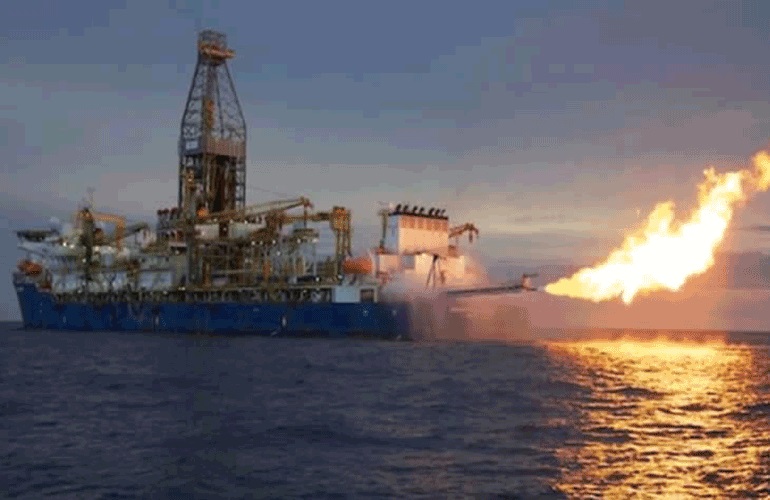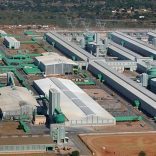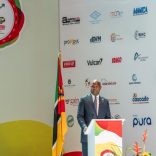Mozambique: ADIN and TotalEnergies sign MoU to promote income generation and job creation in Palma ...
Mozambique: INP marks a decade since the discovery of Rovuma gas

File photo: Noticias
On Thursday afternoon, in its offices in Maputo, the National Petroleum Institute (INP) opened an exhibition celebrating the tenth anniversary of the discovery of natural gas in the Rovuma basin in Cabo Delgado.
On February 18, 2010, in the scope of the second public tender for the concession of areas for research and production of gas and oil, North American oil company Anadarko announced the discovery of vast hydrocarbon reserves in the Rovuma Basin, specifically in the Windjammer field.
It is to celebrate the discovery of these reserves that the sector regulator, the INP, organised this exhibition.
Speaking at the opening, the Secretary of State for Youth and Employment, Oswaldo Petersburg, said that “this discovery must translate into an improvement in the life of Mozambicans. The exhibition symbolises hope, growth and change”.
For the Chairman of the INP Board of Directors, “the discovery of hydrocarbons is changing the country”.
Systematic hydrocarbon research in Mozambique actually began in the mid-1950s, with preliminary results leading decades later to discoveries in the Pande, Temane and Buzi fields in the Mozambique Basin.
“After intense and long-term research work, seismic surveying and the drilling of countless prospecting wells, after a long and epic journey marked by many advances and setbacks, the Rovuma Basin finally revealed its huge hydrocarbon potential,” the INP declares.
In view of the new situation, the Mozambican government approved the implementation of three large projects for the production of liquefied natural gas (LNG) from the Coral Sul, Golfinho/Tuna and Rovuma fields, with investments totalling an estimated US$50 billion.
These investments are thought to have the potential to create more than 10,000 jobs, and provide countless opportunities for small and medium-sized domestic enterprises.
Companies providing goods and services across the entire value chain, including electricity generation, fertiliser production, methanol and liquid fuels, will contribute to transforming the country, placing Mozambique in the ranks of the largest natural gas producers and LNG suppliers in the world.
By Edson Arante












Leave a Reply
Be the First to Comment!
You must be logged in to post a comment.
You must be logged in to post a comment.